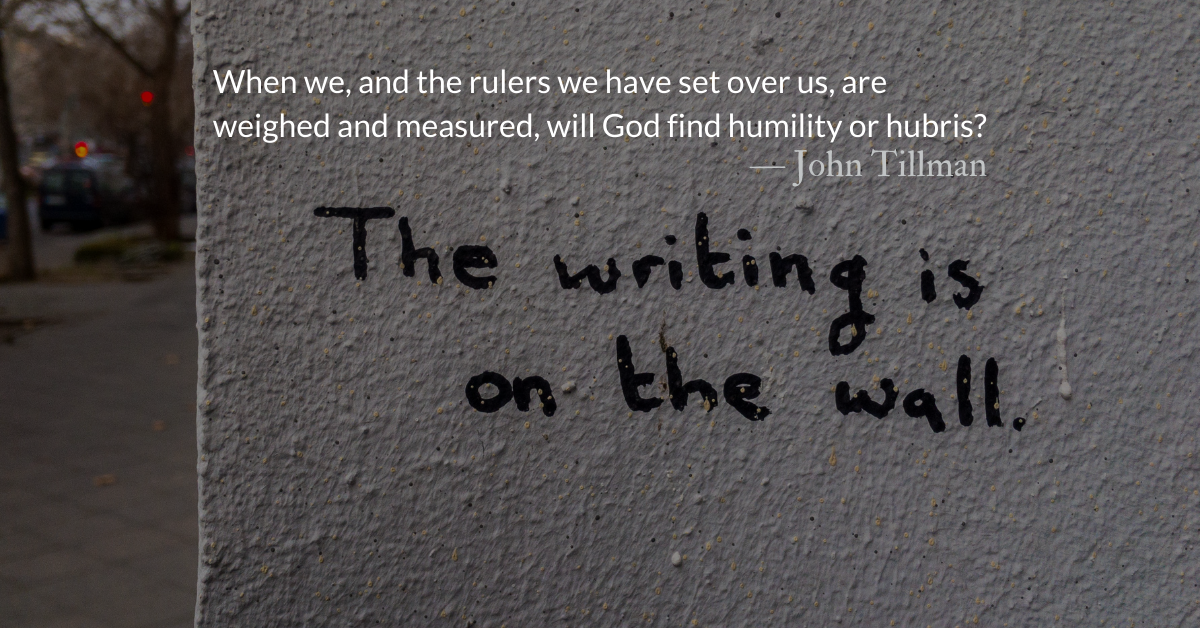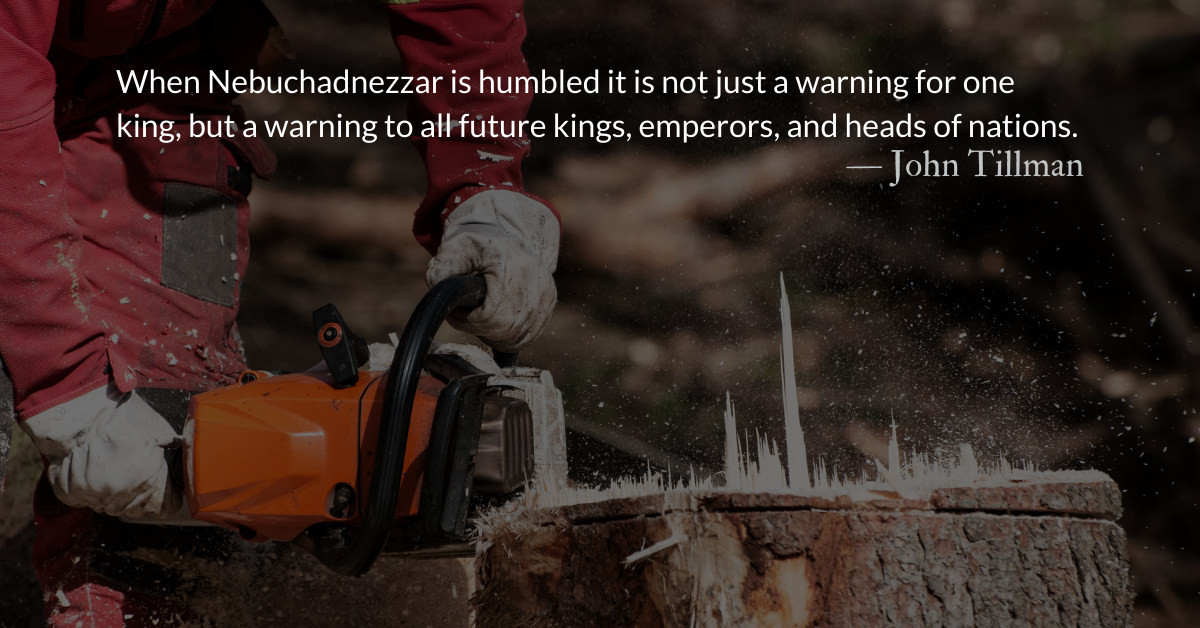Scripture Focus: Daniel 5.17, 25-28
17 Then Daniel answered the king, “You may keep your gifts for yourself and give your rewards to someone else. Nevertheless, I will read the writing for the king and tell him what it means.
25 “This is the inscription that was written:
MENE, MENE, TEKEL, PARSIN
26 “Here is what these words mean:
Mene: God has numbered the days of your reign and brought it to an end.
27 Tekel: You have been weighed on the scales and found wanting.
28 Peres: Your kingdom is divided and given to the Medes and Persians.”
Psalm 110.5
The Lord is at your right hand; he will crush kings on the day of his wrath.
Psalm 111.10
The fear of the Lord is the beginning of wisdom; all who follow his precepts have good understanding. To him belongs eternal praise.
Reflection: Weighed and Found Wanting
By John Tillman
The terms written on Belshazzar’s wall come from counting and weighing money made of precious metals and are filled with double meanings. Mene means “mina” and sounds like the word for “measured.” Tekel means shekels, a unit of weight measurement, and was also a play on the word numbered. Parsin means half-shekels, implying a kingdom divided, and sounded like Persian, which is who would take over the kingdom.
“Writing on the wall,” has become a worldwide idiom that shows up in countless cultural references. Many don’t know that it comes from the Bible. But there is more to the meaning of the phrase than an ominous warning. The writing on the wall is all about pride and gold.
The gold items Belshazzar was drinking from had an interesting history.
After humbling Egypt, God caused Egyptians to look favorably on the slaves as they left. God told the Israelites to ask for items of gold and jewelry, “so they plundered the Egyptians.” (Exodus 11.1-3; 12.31-36)
Later, the people gave of this gold to make implements of worship designed by God. (Exodus 35.20-29) A generation prior to the exile, Hezekiah showed off these golden items in the temple to visiting Babylonian officials, which seems to have sparked Babylon’s interest in conquering the land. (2 Kings 20.12-18)
So, Belshazzar held in his hand golden cups designed by God, made from gold taken by God by humbling Egypt at the height of its power. Belshazzar stood atop the empire of his father, called the “king of kings,” who at the height of his power suffered humiliation and exile because of his pride.
Belshazzar held God’s cup but did not honor the God who held his own life in his hands. (Daniel 5.23) Belshazzar “knew all this” but still chose to defy the God of Israel. Belshazzar did not measure up. He was found wanting.
Belshazzar should have known better and so should we. We also hold in our hands wealth and power that we think we gained for ourselves but which came from God.
We, like Belshazzar, “know all this,” but do we learn from the sins of our fathers before us? Do we continue in them or deny them?
We are responsible for what we know and what we do about it.
When we, and the rulers we have set over us, are weighed and measured, will God find humility or hubris? Kindness or callousness? Generosity or greed?
Divine Hours Prayer: The Request for Presence
Show your goodness, O Lord, to those who are good and to those who are true of heart. — Psalm 125.4
– Divine Hours prayers from The Divine Hours: Prayers for Autumn and Wintertime by Phyllis Tickle
Today’s Readings
Daniel 5 (Listen – 5:47)
Psalm 110-111 (Listen – 1:57)
Read more about Humbling Nebuchadnezzar
Humility will save you and your nation. Pride will destroy you and your nation. If only kings had ears to hear.
https://theparkforum.org/843-acres/humbling-nebuchadnezzar/
Read more about Hearing the Groans of the Prisoners
He hears the cries of all those oppressed by their rulers. He judges all rulers and leaders who conduct themselves with pride and irresponsibility.






